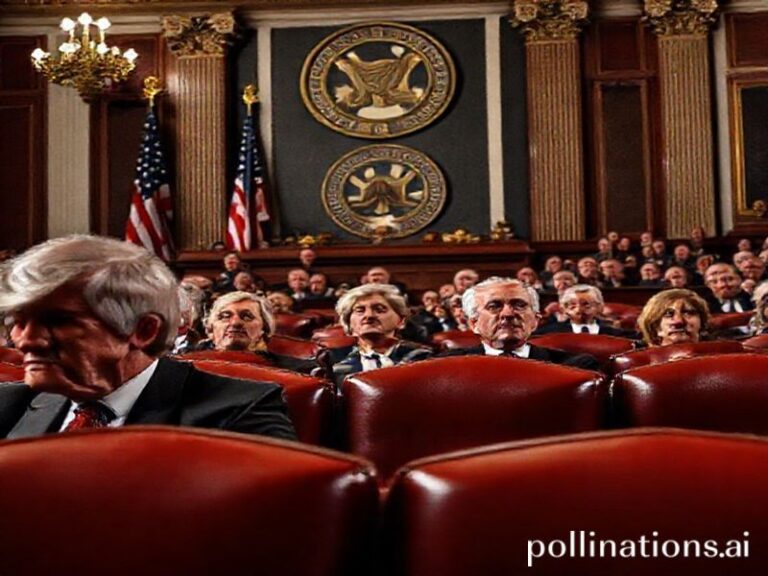Booger McFarland: How One Man’s Nickname Became the World’s Guiltiest Pleasure
Booger McFarland and the Universal Language of Ridiculous Names
By Our Man in the Cheap Seats, Singapore Changi T-3
The phrase “Booger McFarland” drifted across my trans-Pacific flight like a rogue sneeze particle: small, sticky, impossible to ignore. Somewhere above the Mariana Trench, a Hong Kong financier watching ESPN on the seat-back screen bark-laughed at the name, a Lagos oil trader two rows up googled it, and a Milanese fashion intern started a meme thread before we reached cruising altitude. In that moment the entire planet achieved rare consensus: this was a moniker so magnificently absurd it transcended borders, currencies, and the usual geopolitical squabbles.
Who, or what, is Booger McFarland? Americans insist he is Anthony “Booger” McFarland, former NFL defensive tackle turned broadcaster with the conversational cadence of a man who swallowed a metronome. Europeans assume he must be a minor Marvel anti-hero—green, viscous, sells NFTs. In Jakarta he trended for 36 hours as #PakBelalai, “Uncle Booger,” after a local satire account Photoshopped him onto the 100,000-rupiah note. The Chinese internet, never one to waste a perfectly good meme, turned him into a verb: “to McFarland,” meaning to commit an act of spectacular self-ownage on live television—usually while wearing a suit the color of expired guacamole.
The global fascination is not, of course, about a retired athlete’s sinus-themed nickname. It is about the sheer improbability that a grown man, presumably raised by humans, voluntarily answers to “Booger” in front of 330 million Americans and, thanks to streaming, seven billion accidental spectators. It’s as if the United Nations suddenly announced Secretary-General “DampSock Gigglewitz.” The planet pauses, united in second-hand embarrassment.
There is also the geopolitical layer. In an era when tariffs are weapons and vaccines are diplomatic currency, the export of a name like Booger McFarland represents the rare U.S. surplus that no one asked for yet everyone consumes. The Australian Broadcasting Corporation ran a 700-word explainer under the headline “Why Do Americans Name People After Mucus?” Meanwhile, French state radio devoted an entire segment to the philosophical implications: “If identity is performance, then Monsieur Croûte-Nasale performs the collapse of late-capitalist gravitas.” Only the Germans tried to be helpful, offering a stern infographic on nasal etiquette.
Economists—those irrepressible party animals—have noted the McFarland Effect. Merchandise featuring the word “Booger” spiked 400 % on Etsy, mostly sold to countries that still think it means “small ghost.” India’s cricket-commentary industrial complex briefly floated hiring him for the IPL, figuring anyone called Booger could pronounce “Krunal Pandya” without spraining a vowel. Even the staid London Metal Exchange saw tin futures wobble after a rogue trader changed his Bloomberg chat handle to “BoogerLME” and accidentally triggered a $2 million algorithmic short. The Bank of England called it “a liquidity event of questionable maturity.”
Naturally, the man himself remains cheerfully oblivious to his role as soft-power boogeyman. On a recent SEC Network segment he opined, “At the end of the day, football is football,” which Geneva’s International Crisis Group promptly classified as “a sentiment technically true yet existentially hollow.” Still, give credit where mucus is due: in a fractured world, Booger McFarland has become what the Davos crowd only pretends to be—a unifying brand. No border wall can stop his nickname; no firewall can scrub the memes. He is globalization’s runny nose.
And so we land, disembark, and shuffle through temperature checks that scan for fever but not for sophomoric humor. Outside, a Tokyo billboard flashes an ad for nasal strips featuring a cartoon Booger in samurai armor. Somewhere, a child asks why the warrior is named after dried snot, and a parent sighs, realizing the answer involves the collapse of cultural gatekeeping, the triumph of irony, and the fact that humans—regardless of passport—will always find a way to laugh at another human called Booger.
In the end, the joke isn’t on McFarland; it’s on us, the multilingual, multinational audience happily rubbernecking at the linguistic car crash. We thought we were watching football commentary. We were actually witnessing the last shared gag before the heat death of nuance. If that doesn’t bring a tear to your eye, well—grab a tissue. You know what to do with it.







